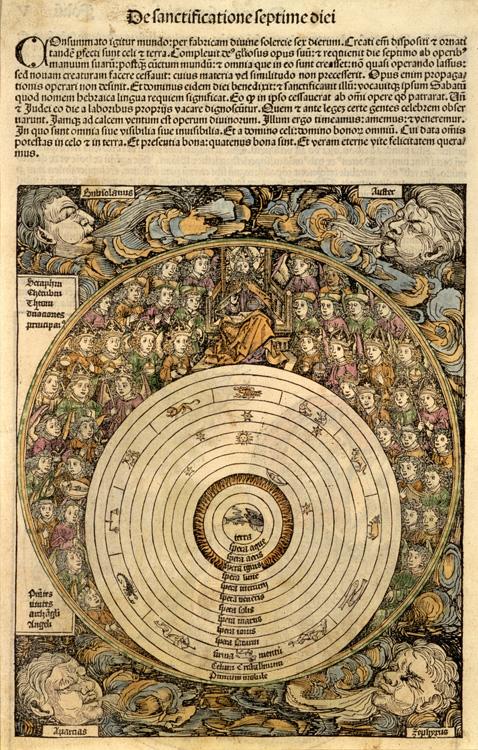NEH announces $18.2 million in awards and offers for 208 humanities projects

An NEH grant will support digitization of celestial maps, star charts, and prints from the 15th to 20th centuries from the collections of the Adler Planetarium and Astronomy Museum

An NEH grant will support digitization of celestial maps, star charts, and prints from the 15th to 20th centuries from the collections of the Adler Planetarium and Astronomy Museum
The National Endowment for the Humanities (NEH) announced today $18.2 million in grants for 208 humanities projects, including grants to digitize, annotate, and analyze a corpus of ancient Coptic texts of importance to scholarship in biblical studies, early Christian history, and linguistics.
This funding will also support a wide variety of projects ranging from the production and development of films, the preservation of and access to historic collections, and the creation of new undergraduate courses in the humanities to stipends and fellowships that support scholarly research, the development of new digital tools for study of the humanities, traveling exhibitions, and the study and preservation of languages at risk of extinction.
Among the grants are those that will support a national traveling exhibition featuring an original copy of Shakespeare’s First Folio and enable production of a documentary film and website on the life and art of playwright Lorraine Hansberry, author of A Raisin in the Sun.
Several projects receiving grants in this funding cycle will help preserve historical and cultural collections and make them more accessible to the broader public, such as the digitization of 5,300 celestial maps and star charts dating from the 15th to 20th centuries documenting humanity’s visual depictions of the cosmos and the creation of an online research portal for archival materials created by or related to the Dadaist artist Marcel Duchamp, whose work helped define conceptual art.
NEH grants announced today will support a project that engages students in documenting and sharing stories of the traditions and transformations of Detroit’s ethnic neighborhoods through an interactive digital storytelling web portal and provide for the development of an interdisciplinary undergraduate seminar exploring conceptions of time in physics, philosophy, fiction and film.
Grant funding will enable research on the reaction amongst American transcendental intellectuals in 1860 to Charles Darwin’s On the Origin of Species and for a book on U.S. composer Aaron Copland and his work as a cultural diplomat in Latin America. Additional grants will provide for residential fellowships that allow scholars to conduct in-depth research at institutions such as the Huntington Library, the Center for Jewish History, and the Philadelphia Area Center for History of Science and help document and preserve endangered languages from North America’s Pacific Northwest Coast and southern Chad.
“NEH grants play a crucial role in expanding our knowledge of our past, ourselves, and our world,” said NEH Deputy Chairman Carole Watson. “From exhibitions and films that reach audiences across the nation to innovative research tools that help scholars look at old problems in a new light, the National Endowment for the Humanities is proud to support some these important endeavors across a broad spectrum of the humanities.”
Institutions and independent scholars in 41 states, the District of Columbia and Puerto Rico will receive NEH support. Complete state-by-state listings of grants are available here (33-page PDF).
Grants were awarded in the following categories:
- America’s Historical and Cultural Organizations: Planning and Implementation Grants support projects that create new ways to excite, inform, and stir thoughtful reflection upon culture, identity, and history in creative and new ways.
- America’s Media Makers: Development Grants enable media producers to collaborate with scholars to develop humanities content and to prepare programs for production.
- America’s Media Makers: Production Grants support the preparation of a media program for distribution.
- Bridging Cultures at Community Colleges Grants advance the role of the humanities at community colleges through curriculum and faculty development projects focused on the theme of Bridging Cultures.
- Documenting Endangered Languages Fellowships and Preservation Grants, a joint initiative between NEH and the National Science Foundation (NSF), support fieldwork and other activities relevant to recording, documenting, and archiving endangered languages, as well as the preparation of transcriptions, databases, grammars and lexicons of languages that are in danger of being lost.
- Digital Humanities Start-Up Grants encourage innovations in the digital humanities by supporting the planning stages of projects.
- Enduring Questions Grants allow faculty members to develop a new undergraduate course that grapples with a fundamental question addressed by the humanities.
- Fellowship Programs at Independent Research Institutions provide scholars with research time and access to resources that might not be available at their home institutions.
- Humanities Collections and Reference Resources Grants allow institutions to preserve and provide access to collections essential to scholarship, education, and public programming in the humanities.
- NEH On the Road Grants help small sites defray the cost of hosting an NEH traveling exhibition.
- Summer Stipends support full-time work by a scholar on a humanities project for a period of two months.